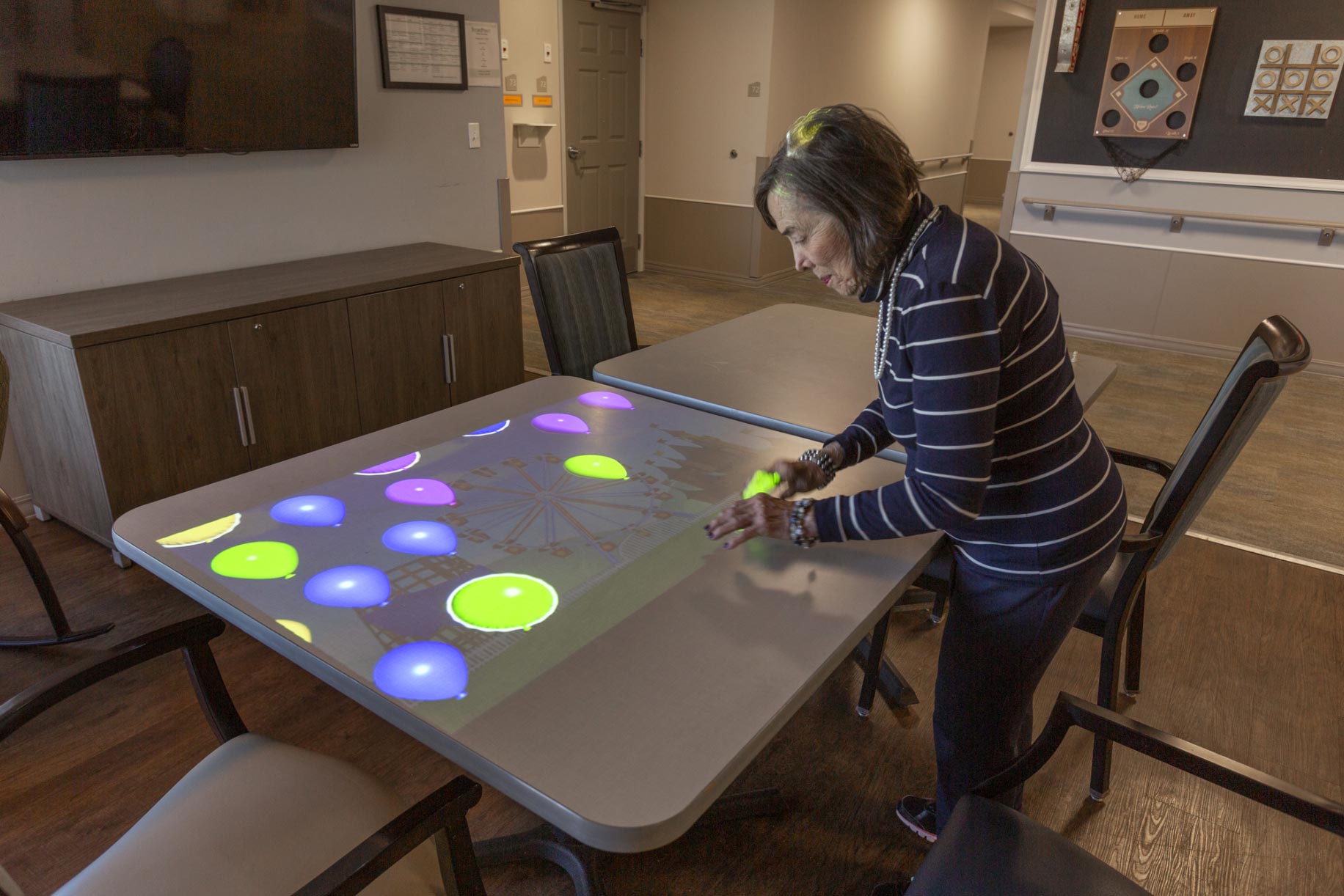Producing a Safe and Supportive Atmosphere for Alzheimer's Treatment
The creation of a safe and encouraging setting for individuals with Alzheimer's is paramount in enhancing their high quality of life. This involves not just physical adaptations within the home, such as decreasing risks and including familiar aspects, but additionally the execution of structured regimens and meaningful tasks that satisfy their cognitive requirements. Moreover, comprehending the psychological and emotional measurements of treatment can substantially affect their feeling of safety and link. Checking out these complex methods can expose essential understandings into effective caregiving methods that might change the day-to-day experiences of both caregivers and clients.
Recognizing Alzheimer's Demands
Regularly, people with Alzheimer's illness show a range of requirements that need customized strategies to care. As the problem progresses, cognitive decrease materializes in different means, impacting memory, reasoning, and even the ability to execute daily activities. Caregivers must recognize these advancing demands to offer appropriate assistance and make sure a better of life for those influenced.
One important facet of recognizing Alzheimer's requirements is recognizing the importance of regular and knowledge. People commonly discover comfort in well-known patterns, which can minimize anxiousness and confusion. Caretakers must strive to develop structured day-to-day routines that incorporate purposeful activities straightened with the person's interests and abilities.
Additionally, reliable communication is extremely important. People with Alzheimer's might struggle to reveal themselves or comprehend complex language. Caretakers should utilize straightforward, clear language, use non-verbal signs, and method energetic listening to cultivate understanding and connection.
Last but not least, emotional and social demands can not be neglected. Offering opportunities for social interaction and keeping relationships can substantially enhance psychological wellness. Caretakers need to encourage interaction in area tasks or household celebrations, advertising a sense of belonging and function. Recognizing these varied demands is vital for developing a supportive care environment.
Designing a Safe Home
Developing a risk-free home for people with Alzheimer's condition is crucial to promoting and lessening dangers self-reliance. The style of the living area ought to prioritize safety while enabling personal convenience. First, remove potential dangers such as loosened rugs, sharp things, and mess, which can cause falls or accidents. Ensure that pathways are clear and well-lit, as correct illumination decreases disorientation and enhances mobility.
Incorporating flexible functions is also critical. Mount grab bars in washrooms and near stairs, and take into consideration using non-slip mats in wet locations. Additionally, using different colors for floors and walls can assist in distinguishing areas, aiding to mitigate confusion.
Familiarity is essential for people with Alzheimer's. Personalizing the atmosphere with familiar items and pictures can reinforce a feeling of belonging and safety - Alzheimers Care Charlotte. It is additionally valuable to have an assigned location for day-to-day activities, such as reading or crafting, which can supply framework to their day
Finally, implementing a safe outside space enables secure expedition while getting in touch with nature. By attentively creating the home environment, caretakers can dramatically enhance the high quality of life for individuals dealing with Alzheimer's condition.
Enhancing Interaction Skills

Non-verbal communication, consisting of faces, gestures, and touch, plays a critical duty in sharing compassion and understanding. Preserving eye call and a tranquil behavior can improve the convenience degree of the person, promoting a sense of check my blog safety.
Furthermore, it is necessary to practice energetic listening. This involves being completely present, revealing perseverance, and permitting the individual to share themselves without disruption. Rep might be necessary; caregivers need to be prepared to revisit subjects or questions, as people with Alzheimer's might have problem with memory recall.
Additionally, utilizing visual aids or hints, such as photos or familiar items, can assist in acknowledgment and involvement. Ultimately, boosting communication skills is regarding constructing trust and producing an environment where individuals really feel heard, valued, and comprehended, thereby enhancing their high quality of life.
Motivating Social Communication
Promoting meaningful social communications can considerably improve the well-being of people with Alzheimer's illness. Engaging with others not just aids battle sensations of seclusion yet additionally boosts cognitive feature and psychological health. Structured social tasks, such as team arts, video games and crafts, or songs therapy, create possibilities for residents to get in touch with peers and caretakers, which can cause enhanced mood and minimized anxiousness.
Developing an inviting environment that encourages socializing is crucial. This can be accomplished by setting up communal spaces that facilitate interaction, such as comfy seating locations or activity areas. Furthermore, incorporating culturally pertinent and acquainted activities can trigger memories and motivate involvement, permitting individuals with Alzheimer's to feel more linked to their previous experiences.
In addition, caregivers should be educated to acknowledge and advertise social interaction among homeowners. By prioritizing social interaction, we can substantially enrich the lives of those living with Alzheimer's, cultivating a sense of area and belonging.
Sustaining Caretaker Health

To support caretakers, organizations ought to use normal training and instructional sources to boost their understanding of Alzheimer's disease and caregiving techniques. Offering accessibility to break treatment solutions enables caretakers to take needed breaks, lowering stress and fatigue - Alzheimers Care Charlotte. Additionally, cultivating an area via support system can assist in psychological sharing and the exchange of practical advice among caregivers, creating a network of common assistance
Psychological wellness sources, such as therapy services, can likewise be important in resolving the emotional toll caregiving can take. By prioritizing caregiver health, we develop an even more lasting caregiving atmosphere that not only profits try this the caretakers themselves however also enhances the overall top quality of treatment gotten by people with Alzheimer's. Inevitably, supporting caregivers is a necessary element in promoting a efficient and thoughtful treatment setting.
Conclusion
Finally, the production of a safe and supportive environment for people with Alzheimer's is necessary to improving their lifestyle. By prioritizing safety and security with thoughtful design, cultivating psychological well-being with familiar elements, description and advertising interaction through structured regimens, caregivers can considerably influence the total experience of those influenced by this condition. In addition, supporting caretaker wellness is crucial, as it ultimately contributes to a much more effective and thoughtful care atmosphere.
Repetition may be essential; caregivers need to be prepared to revisit concerns or subjects, as people with Alzheimer's may have a hard time with memory recall.
